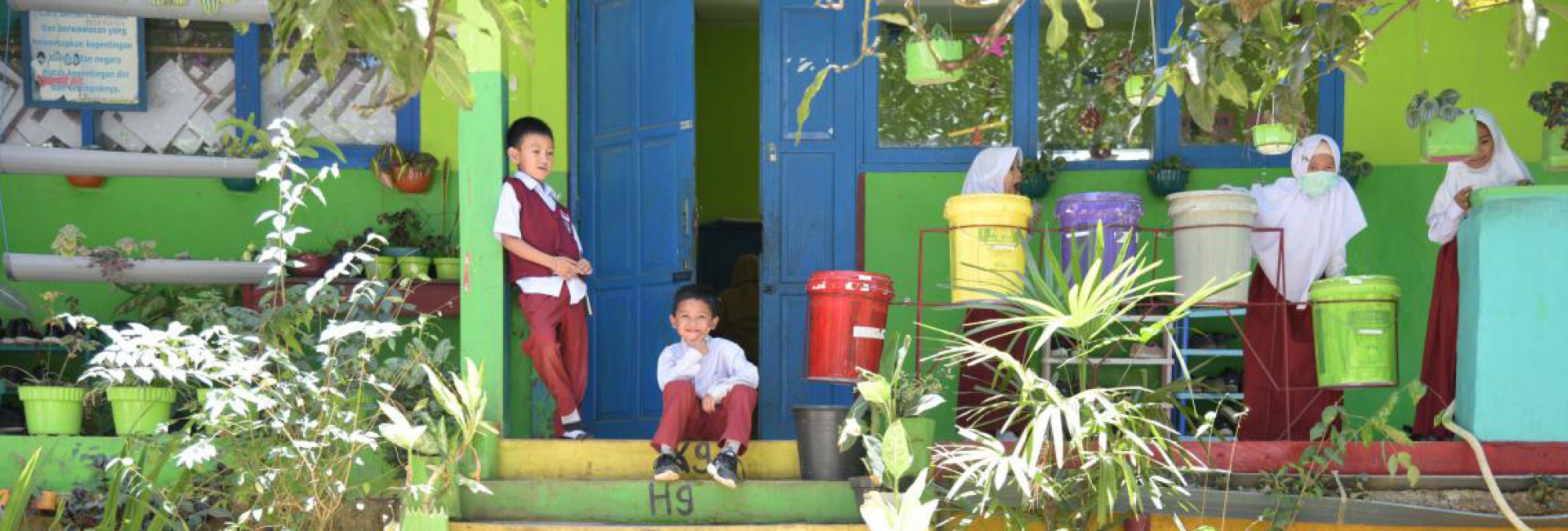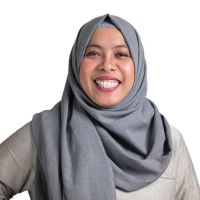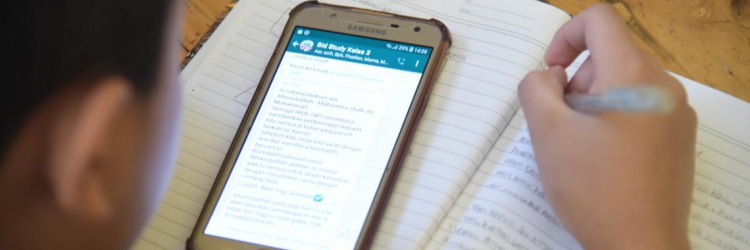.
This article was written to commemorate National Education Day on May 2nd.
.
School closures due to the COVID-19 pandemic has detrimental effects on children, such as learning disability, learning loss, dropping out of school, widening knowledge gaps, and impaired emotional development and psychological health.
A UNICEF study states that children who cannot access in-person schools will be further left behind and marginalized. Meanwhile, the National Child Protection Commission (KPAI) found the number of children dropping out of school was increasing during the pandemic, especially in groups of children from underprivileged families.
Given the situation, reopening in-person schools in the midst of a prolonged pandemic is an option to think about. If resumed, of course, in-person learning must be carried out with extra caution. Health protocols must be strictly practiced, and schools need to recover learning loss so that students can continue learning according to their needs to avoid being left behind.
School closures in Indonesia have taken place since March 2020. The government, through a Joint Ministerial Decree (SKB) of Four Ministers, allows schools to resume in-person learning to prevent worsening learning loss. In March 2021, Minister of Education and Culture Nadiem Makarim announced that schools could resume in-person learning starting in the 2021/2022 school year by implementing health protocols.
In-Person School Trials in Several Districts
According to a survey by the Directorate of Primary Schools of the Ministry of Education and Culture, as many as 80.4 percent of school principals and school committees have agreed to hold in-person learning. The survey involved 591 respondents in 46 districts consisting of 128 teachers, 138 students, 139 parents, 140 school principals, and 46 local education agencies.
The survey results also found that 78.3 percent of primary schools have implemented in-person learning, with 57.8 percent holding it outside of school, and 42.2 percent not outside of school.
West Sumatra is the first province to hold in-person schools in early 2021. In Solo, Central Java, 23 schools and one madrasa have conducted in-person learning in March. Regions that conducted in-person school trials in April 2021 include the Mataram City, Yogyakarta Special Region, DKI Jakarta, and the Banjarmasin City.
I Ketut Budiarsa (Budi), Acting Principal of Public Primary School 26 Pemecutan, Denpasar City, Bali Province, a speaker at the RISE Programme’s Education Talk event, told about the responses of schools, teachers, and parents at his school regarding the plan to resume in-person learning. Budi’s school is still conducting distance learning to date.
“The school responded positively [to the plan] because there were obstacles [in] online learning [in learning] which would be better done in person. Teachers miss the students, and students miss interacting with their friends. Many parents also expect schools to resume immediately because they have difficulty teaching their children as their interest in learning tends to decline. However, some parents remain doubtful or worried about the health and safety of their children.”
If the trial of Budi’s school reopening does not go as expected, and the severity of the COVID-19 cases in his area remains high, distance learning will continue.
In preparing for in-person learning, schools are required to meet checklists and apply health protocols set by the government. In addition, schools also need to prepare ways to recover learning loss in students because of the pandemic.
Recovering Learning Loss
Simulations show that school closures due to the COVID-19 pandemic may result in worse learning loss than those accumulated during regular school breaks. This loss of schooling can have a vast, permanent impact and affect students’ wages as adults.
mme in Indonesia has published a guideline for recovering learning loss as schools reopen. The first step in the guideline is for schools to clearly communicate to parents, either through in-person meetings in small groups or online, about the plan to reopen the school for in-person learning.
When students resume in-person learning, schools need to immediately assess their students’ learning to see their baseline after months of minimal and irregular learning. This learning assessment is important because learning facilities and parental support for students undergoing distance learning during a pandemic vary. This variation resulted in the widening learning inequality among students. Students with limited facilities and support felt the most adverse impacts of the school’s suspension of learning activities. Without specific intervention, when schools reopen, students of underprivileged families will be further behind from students of well-off families.
In recovering learning loss due to the pandemic, it should be noted that the assessment of student progress does not have to refer to curriculum standards, but rather to the improvement from the starting point of student knowledge (baseline) obtained from the results of learning assessments when students returned to school. Also, when developing plans to recover learning loss, schools should not set high targets that can create new pressure on teachers and students. Schools should focus on improving students’ literacy and numeracy skills that have declined during school closures.
The guideline for recovering learning loss when in-person schools resume also contains aspects to consider in effective teaching to improve learning outcomes. This is particularly important for students with low academic abilities so that they can catch up. Schools can adopt the examples of differentiated teaching described in this document and adjust them to suit their students’ states in school.
Learning from the unequal practices of distance learning, all parties must work together to support Indonesian children to get quality education, both in-person and distance. A simple and feasible example is for a school to collaborate with the community at the village level to conduct learning in small groups in community centres or well-ventilated rooms.
Hopefully, the government, schools, and parents can work together in facilitating student learning activities, both at school and home. Indonesian children are entitled to quality education, both in-person and distance.
Happy National Education Day!









